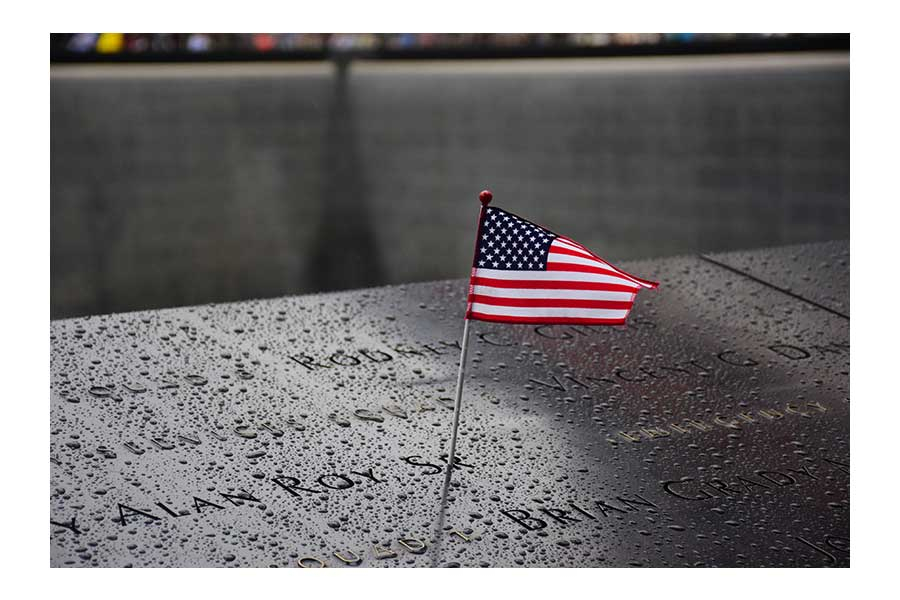An Established Career in US Counterintelligence Operations

David Barton, '70
Q: Could you please tell us about your career after graduating from Johns Hopkins SAIS?
A: I spent over thirty years working in national security, foreign policy, and intelligence policy working with the U.S. Senate, U.S. House of Representatives, and the State Department.
I was at the State Department when 9/11 happened and it became obvious that there would be an investigation by Congress, which recruited me as a staff member for the investigation. It was the first time that the House and Senate did an investigation together in the history of Congress.
There was a group of 20 individuals, divided into teams, one focused on the CIA, one focused on FBI, etc. My specific team was assigned all of the other agencies in the intelligence community. I led a team of investigators looking at the information the intelligence community had before 9/11 and how that information could have given warning and allowed preparations to prevent the attacks.
Q: What did your findings reveal?
A: We found excellent analysts in all agencies of the intelligence community. All agencies had information on either Osama Bin Laden and/or the attackers themselves. There were bits and pieces of information across all agencies, but the problem was that there was no individual or group in charge as a whole to synthesize all counter terrorism information. There was no central place for all the different intelligence information to come together. Also, there was a need for a leader and decision maker for the entire intelligence community to allocate resources and set priorities so that all the intelligence agencies would be working together and sharing their counter terrorist information. For example, the Head of the CIA was supposed to fill that role but did not have adequate authority to implement that role across all the agencies of the intelligence community.
The National Commission on Terrorist Attacks Upon the United States (also known as the 9-11 Commission), was built on the work we established. We submitted our findings to the National Commission, which then did a 2 year investigation similar to ours, focused on the foreign policy considerations and our recommendations for changes to the intelligence community.
By then I was working with Senator Joe Lieberman and the Senate Homeland Security and Governmental Affairs Committee regarding policy and legislative matters related to 9/11. After extensive hearings and research, we passed legislation in the House and Senate which went to President Bush in 2004 to sign into law our intelligence reform legislation. This allowed for necessary reform in the intelligence community, namely establishing a Director for National Intelligence, who serves as the head of the U.S. Intelligence Community, and a National Counterterrorism Center – establishing one location for all possible information on terrorist attacks.
Q: What is a lesson for all Americans?
A: The profound impact of the families of the 9/11 victims. Their advocacy was key in terms of encouraging, prodding, and prompting the House and Senate to act and for the National Commission to be formed. The families were present for every hearing, numerous meetings with staff, always pressuring for results. They turned their grief into action and were key in getting results. I had never seen that in my career before – such a strong demonstration of our democracy - these families were able to influence and get results so that other families wouldn’t have their experience. They were very effective at getting results.
Q: How did your Johns Hopkins SAIS education prepare you for your career?
A: Johns Hopkins SAIS got me started and was key for all of my future work. The multi-disciplinary approach, and emphasis on language and areas of concentrations – I chose international economics, American foreign policy and African studies- were instrumental in broadening my perspective on foreign policy. This approach stayed with me throughout my policy career.
Q: What are you most proud of?
A: I am very proud of the impact of our investigations – the ability to make recommendations in law for changes to the intelligence community. As a result, laws were instituted based on our findings, making American lives safer. Now, the intelligence community as a whole is much more capable of thwarting attacks before they get started.
Also, when I worked with the House Foreign Affairs Committee, we were instrumental in achieving a chemical weapons agreement that banned chemical weapons around the world, outlawing chemical weapons globally. I am proud of the role I played to help make that happen, particularly getting the international Organisation for the Prohibition of Chemical Weapons in the Netherlands up and running.
Q: What advice do you have for current students?
A: Students need to remember to be as nonjudgmental as possible. It is easy in foreign affairs to make quick decisions and judgments. Do your research as objectively as possible – both in terms of studies and interviews – and make sure you look at the multiple sides of an issue. This will allow you to be more effective when you are designing and implementing policy. An important aspect of policy making is taking good, objective research and understanding the different reasons or positions of an issue. If your approach is one filled with respect for different approaches and cultures, you’ll have a deeper and longer lasting impact.
Lastly, never underestimate the power of learning languages. On my 9/11 investigative team, one investigator had an understanding of 7 languages, another 5 languages, which was crucial for our work and background knowledge. Languages are very important for careers in international affairs.
Back to Alumni Spotlight